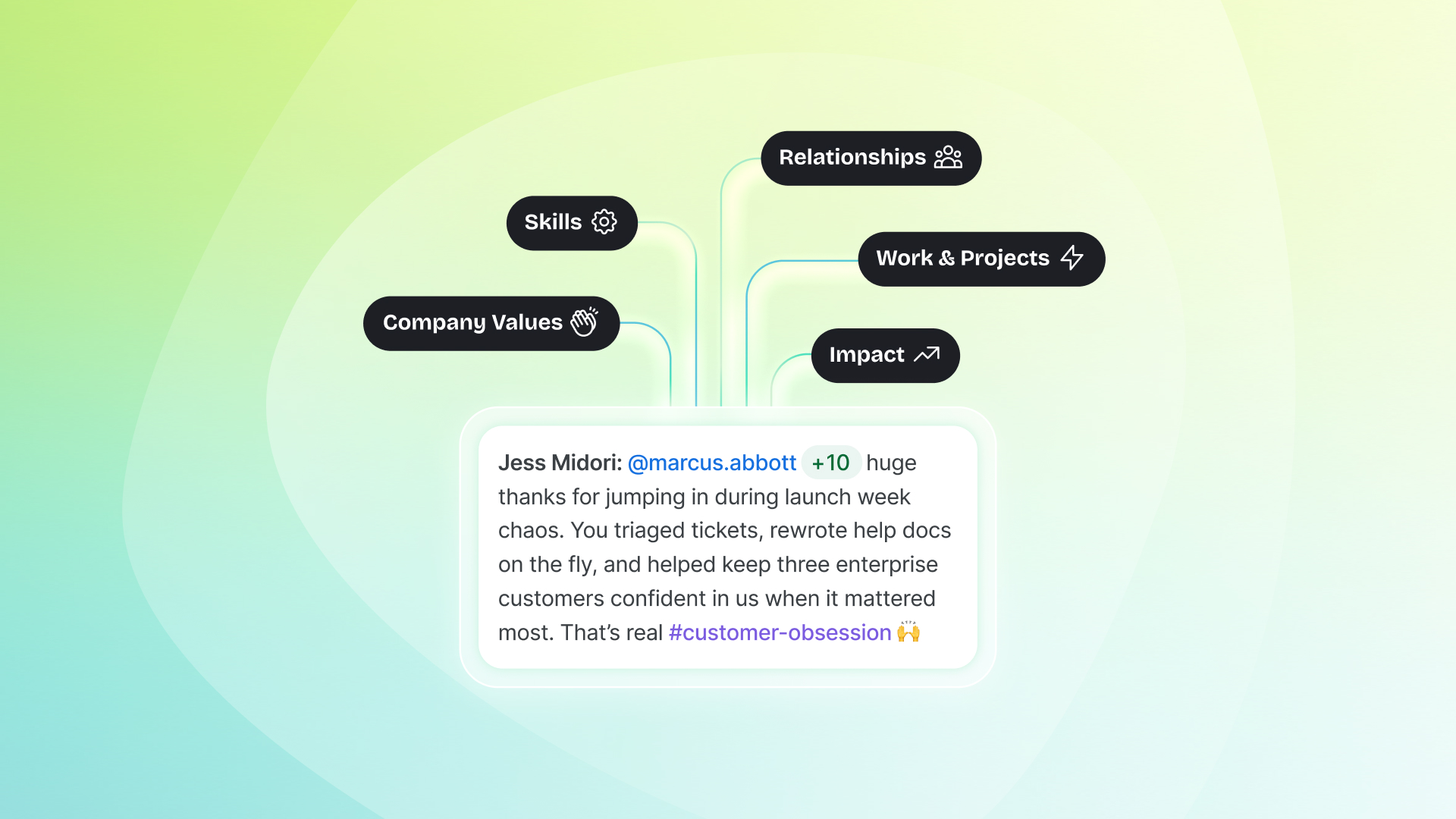Top Ways Employee Empowerment Can Help Your Company Thrive

Creating a successful, sustainable business is always a top initiative for leadership teams. Often, this means trying to strengthen the bottom line, but that doesn’t need to be focused solely on numbers. 🔢
Finding ways to help your people is just as important as increasing profit; in fact, the two are undoubtedly intertwined. One strategy for building a workplace where people are motivated and productive is through employee empowerment strategies.
Hot off the press: Your 2023 HR Checklist to Retain Top Talent
What is employee empowerment?
Employee empowerment isn’t something that looks the same in every organization. That said, the basic goal of any empowerment program is to equip employees with the autonomy and responsibility to solve problems and ultimately succeed in their jobs.
Research shows that when employees feel empowered at work, employers can expect stronger job performance, higher job satisfaction, and a stronger commitment to the organization. Win-win, wouldn’t you say?
Continue reading to learn why employee empowerment is worth investing in and how you can empower employees in your organization. After all, people are often a business’s most valuable asset, so it simply makes darn good sense to invest in them.

What are the benefits of employee empowerment?
First, let’s look at some of the benefits that you could reap from an employee empowerment program.
1. Smoother, better operations
First and foremost, empowered employees inherently have more autonomy. That’s what it means to be empowered, after all. As a result, work can become a lot more efficient. By eliminating micromanagement and simplifying chains of command, not only can decisions be made more quickly, but problems can be solved more effectively.
This also reduces downtime. When employees aren’t waiting on a manager for approval or direction, they don’t have to just sit around until they hear back. They’re free to take care of things themselves—and freed from tedious waiting!
This can also help improve customer service and support. When employees don’t constantly have to seek approval, they can help customers more quickly. And we all know that customers always want things done as fast as possible. Plus, when customers interact with someone who has the authority to make decisions, they feel like they’re being treated well, not passed along to someone who’s not in a position to truly help.
2. More creativity and innovation
An important aspect of work empowerment is creating an environment of trust. This can be a big shift, especially if employees worry about making mistakes. But when mutual trust is established, mindsets will start to shift.
Rather than resorting to the safest idea in order to avoid failure, employees will be willing to consider creative and innovative approaches. When they know they have ownership of their work, they won’t feel restricted to sticking to the way things have always been done.
They’ll consider new ways of working. And, since they’re the ones with boots-on-the-ground experience, they just might have better ideas for how to do their tasks. Will these new ideas always pan out? Maybe not, but you will find that there may be opportunities to improve your processes or systems—and these discoveries may come from unexpected places.
3. Higher morale and connection
Employee empowerment isn’t just about practical benefits for the business. It’s beneficial for employees, too! When they have greater control over their jobs and decisions, they not only feel more satisfied with their jobs, but they often feel more loyal to their organizations.
In this age of increasing remote work, employee empowerment can also help create a greater sense of connection among employees. As they’re given more autonomy to work how they prefer, they’ll also be able to learn from each other. When people have the authority to figure out their own tasks, they’ll naturally be curious about how others in similar roles are doing their own tasks.
4. Employee retention
Employee empowerment can also help with culture and, as a result, retention. When employees feel empowered to have ownership of their work, they forge a stronger connection with their organization. Not only does this build up individuals, but it also fosters an environment that’s more uplifting collectively.
This can ultimately be a virtuous cycle, considering that we all know how important your organizational culture is for both productivity and retaining your top talent.
Download for free: 2023 HR Checklist to Retain Top Talent

3 best practices for implementing employee empowerment
Now that you know some of the main benefits of employee empowerment—you’re sold, right?!— let’s look at how you can start to implement empowerment at your organization. One thing to keep in mind, as we mentioned earlier, is that how you do a work empowerment program needs to be unique to your organization.
Also, the Harvard Business Review found that not all opportunities for empowerment are equal. It’s worth considering places or roles where certain types of empowerment might be detrimental to employees and the business. Sometimes, having a tried-and-true process in place is best for everyone.
For roles or areas where increased flexibility and authority make sense, here are some ways that you can implement employee empowerment at your organization.
1. Start at the top
No one will believe they’re truly empowered unless they hear it and see it from your leadership team. This may start with clear communication about how roles and responsibilities are shifting, but it also needs to be demonstrated by example. If leadership continues to insist on a rigid approval process or constantly checks to make sure people are doing things a certain way, “empowerment” will only be a hollow word.
2. Encourage ownership
One thing that often hinders employee creativity and confidence is when they don’t feel they have ownership of their responsibilities. They may go about fulfilling their primary duties, but they’re often likely to do little more than that.
However, when they have ownership over their work, they feel more personally invested in doing it well. Sometimes this can lead to finding ways to improve processes or products, but it always helps people feel more invested in what they’re doing and more valued by their company and its leadership.
One key way to do this is through employee recognition. When people are publicly praised and given applause for their work, it becomes clear that leadership trusts them and wants them to succeed. Not only does receiving recognition help boost employee morale, but it also demonstrates that individuals have real, meaningful ownership over their jobs. And then, the benefits of employee empowerment can really start to flourish.
3. Remove the fear of failure
Having ownership can be a little scary! After all, there’s a certain safety in following a clear checklist or formal procedure. ✅
If you truly want your employees to be empowered in their work, you have to give them a safety net. They need to know that it’s okay to make mistakes and that they won’t be punished for them.
You can help reinforce that by making it clear that leadership is listening. Not in the sense of tracking what employees are doing, of course, but in the sense that you’re trying to understand their current pain points and frustrations. When they know that you’re working to learn what they struggle with on a daily basis, they know that you want them to succeed—and success is what employee empowerment is ultimately about, right? A great place to start listening is in your weekly meetings with employees. We created this one-on-one meeting template that includes a section for taking note of the challenges your employees are facing.
McKinsey and Company conducted a study on psychological safety, which is very much at the core of creating an environment of trust where there’s not a great fear of failure. The upshot? When leaders make a point of listening and building a positive team environment, creativity and culture will organically improve.

The takeaway
No matter what your organization looks like, there are significant ways that employee empowerment can help your company, your culture, and your employees all have greater success.







